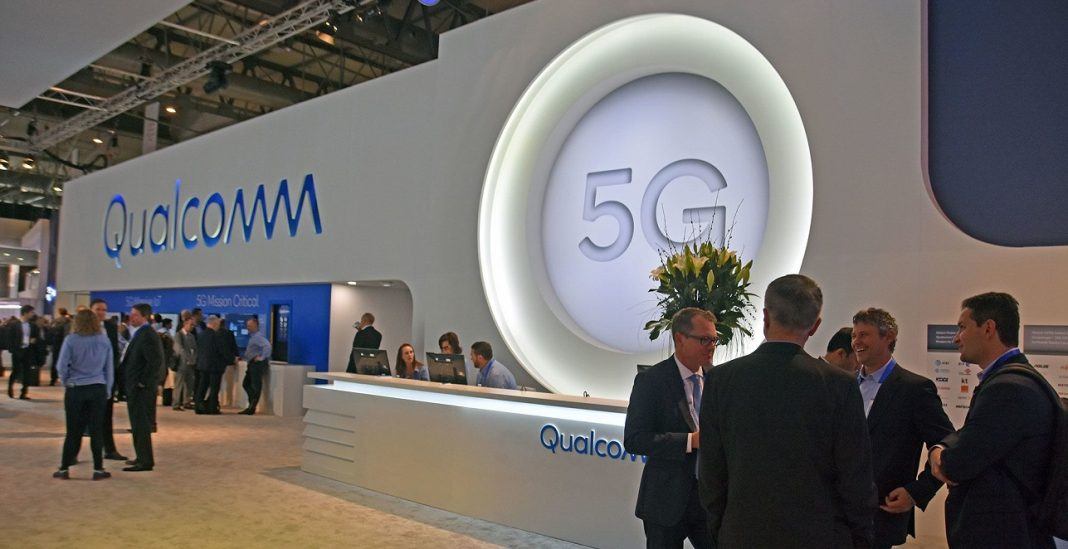
Qualcomm might not be a name many recognize, but it’s the most important tech company, and getting hit with an antitrust violation could truly change the smartphone landscape for years to come. Naturally, the company says it will appeal, but the sting will remain.
A federal judge has ruled that Qualcomm unlawfully squeezed out cellphone chip rivals and charged excessive royalties to manufacturers such as Apple in a decision that undercuts a key part of its business.
The decision vindicates the U.S. Federal Trade Commission two years after it filed its antitrust lawsuit against the San Diego chipmaker. It’s a potentially costly setback for Qualcomm, as the decision could slash its ability to extract big royalties from phone makers.
Qualcomm said Wednesday that it would appeal, suggesting the case could still take a few years to resolve.
“We strongly disagree with the judge’s conclusions, her interpretation of the facts and her application of the law,” Qualcomm General Counsel Don Rosenberg said in a statement.
The outcome seems likely to reduce the licensing fees paid to Qualcomm, but it’s unclear if device makers will pass on any of their savings and lower their prices. The royalties represent a relatively small portion of smartphone prices that now top $1,000 for some premium models.
U.S. District Judge Lucy Koh in San Jose, California, ruled Tuesday that Qualcomm Inc. must renegotiate licensing deals with customers. It must license its patents to rival chipmakers at fair prices and can’t sign exclusive agreements that block competitors from also selling chips to smartphone makers like Apple. Qualcomm must submit to FTC monitoring for seven years.
The case has geopolitical ramifications. If Qualcomm suffered a big hit to its profitability, that could mean less spending on research and development — a knock to an American tech icon as the U.S. embarks on a politically sensitive race with China to update to 5G, a new wireless technology.
“The Trump administration views Qualcomm as almost the crown jewel for the U.S. in terms of U.S. technology development. Similar to the way China views Huawei,” said Angelo Zine, CFRA analyst. “It will be interesting to see if this gets revisited.”
Qualcomm’s rivals are mostly Asian companies, including Huawei, Zine said. The Trump administration has set bruising sanctions against Huawei and pushed European allies not to use the Chinese company’s technology due to national-security concerns of China spying. The U.S. government is also in a spiraling trade war with China.
The Trump administration’s attitude to Qualcomm can be seen in a case from last year, when it blocked a Singapore company, Broadcom, from buying Qualcomm over concerns about national security and who would dominate 5G technology.
Trade group Computer & Communications Industry Association said Tuesday’s ruling was a win for wireless technology, as it would mean more competition.
Qualcomm has justified its “no license, no chips” system as a repayment system for the $40 billion it has spent through several decades working on wireless technology essential to smartphones.
Last month Apple and Qualcomm settled a bitter financial dispute centered on some of the technology that enables iPhones to connect to the internet. The deal requires Apple to pay Qualcomm an undisclosed amount. It also includes a six-year licensing agreement that likely involves recurring payments to the mobile chipmaker.
Apple had already lost an earlier battle with Qualcomm in March when a federal court jury in San Diego decided the iPhone maker owed Qualcomm $31 million for infringing on three of its patents.
Qualcomm shares dropped 12% to $68.18 in afternoon trading.

Amazon Moves Ahead With Facial Recognition
Despite pressure from civil rights groups, activist investors and its own employees, Amazon said Wednesday that shareholders at an annual meeting in Seattle voted against proposals related to two major social issues: climate change and facial recognition technology.
The two proposals on facial recognition had asked Amazon to stop selling its technology to government agencies, saying that it could be used to invade people’s privacy and target minorities.
Earlier this month, San Francisco banned the use of facial recognition software by police and other city departments. Amazon has defended its facial recognition technology, saying that it helps law enforcement catch criminals, find missing people and prevent crime.
The climate change proposal, backed by more than 7,600 Amazon employees, pushed the company to release a detailed plan on how it will curb its use of fossil fuels that power its data centers and planes that ship its packages.
After the shareholding meeting in Seattle Wednesday, the employees said that they plan to continue to put pressure on Amazon to do more to reduce its impact on climate change. Amazon said it already has plans to release its carbon footprint later this year and has been working to cut shipping emissions.
Amazon did not release shareholder vote totals on

